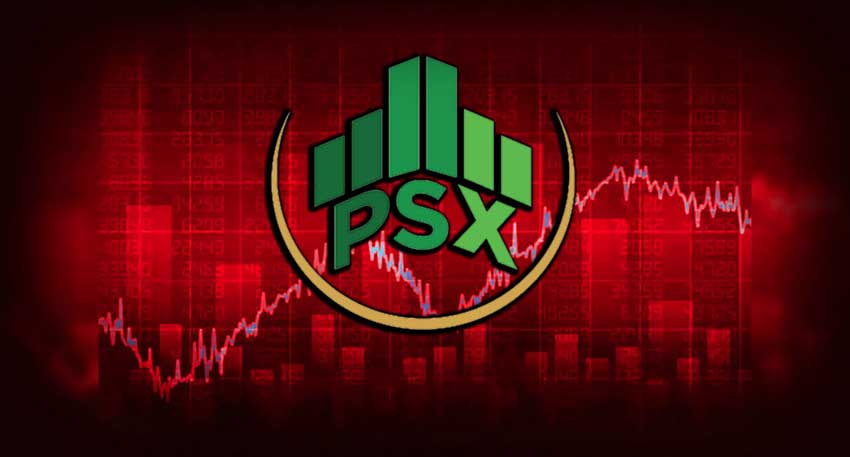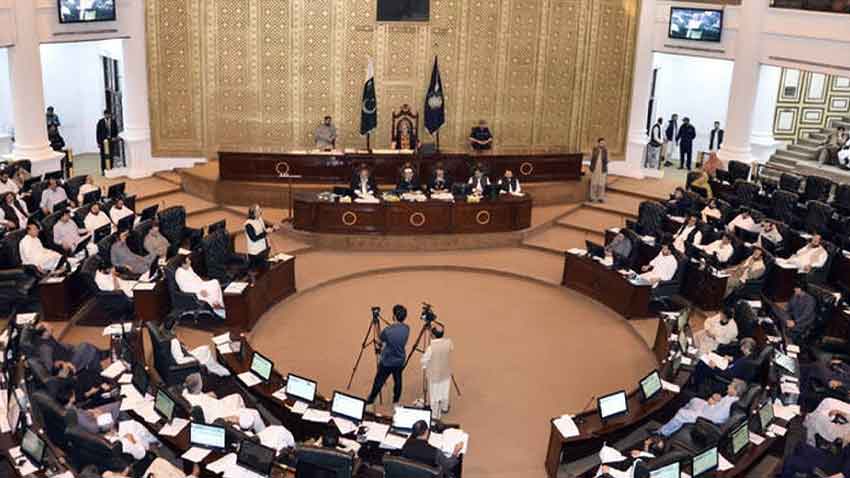
The index closed at 165,266.75 compared to the previous day’s 166,173.75. This marks a negative change of 0.55 percent, continuing the downward momentum in the local bourse.
Despite the fall, overall market activity increased, with a trading volume of 1,274,692,822 shares compared to 1,266,227,891 shares in the previous session. The total share value also surged to Rs61.13 billion, up from Rs54.22 billion recorded earlier.
Out of 484 active companies, 148 saw gains, 297 faced losses, and 39 remained unchanged — highlighting a strongly negative sentiment among investors.
The most-traded companies included Pakistan Telecommunication Company Limited (PTCL) with 114,322,798 shares at Rs33.37 per share, Bank of Punjab with 88,049,557 shares at Rs33.63 per share, and K-Electric Limited with 87,482,618 shares at Rs7.23 per share.
Read more: Gold breaks all records as global rally push prices up
Among gainers, Hoechst Pakistan Limited recorded the highest jump of Rs56.08 per share, closing at Rs3,986.08. It was followed by Unilever Pakistan Foods Limited, which rose by Rs49.11 to settle at Rs30,000.00.
However, Rafhan Maize Products Company Limited led the major decliners with a loss of Rs176.85 per share, closing at Rs9,724.82. Ismail Industries Limited followed, down by Rs41.68 to close at Rs2,033.00.
In the futures market, 336 companies traded their shares — 107 posted gains, 226 suffered losses, while three remained unchanged. The futures volume reached 236,160,000 shares with a total value of Rs18.56 billion.
Pakistan Telecommunication Company Limited (PTC-OCT) was the most active future scrip, trading 28,081,500 shares at Rs33.76 per share. GHNI-OCTB gained Rs36.99 to close at Rs889.98, while MARI-OCTB saw the biggest drop of Rs13.64, closing at Rs747.68.
The market’s consistent decline reflects investor uncertainty driven by currency instability, political developments, and fears of slower economic growth. Despite strong activity in telecom and power sectors, overall market confidence remained shaky. Analysts warn that if policy clarity and investor sentiment do not improve soon, the bearish pressure could persist in the coming sessions.




